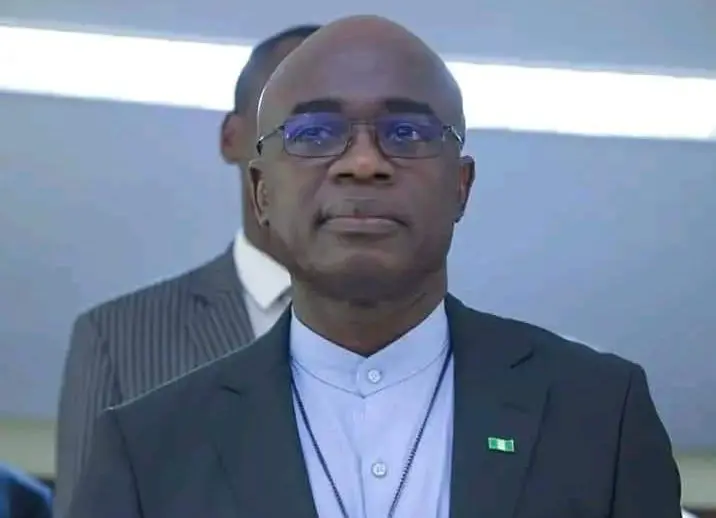The Benue State Governor, Rev Fr Hyacinth Iormem Alia, has said that the state under his watch, will pay the N70,000 minimum wage to workers in the state.
Governor Alia made this known while speaking to Journalists in Makurdi, the Benue state capital on Friday.
According to him, his administration has laid down modalities to enable the state to generate revenue, increase the state workforce and productivity through increased commitment to staff welfarism.
He stated that his administration has blocked all the leakages that limited the state’s Internally Generated Revenue, IGR, adding that his administration is focused and had put up measures to make things function.
The governor said, “Though with harsh economy things have been stagnated but with all the plans and measures that are in place for things to function, things are moving, even our internally generated Revenue has increased.
“It’s now left for us to close all loopholes to see how much we can cash in to do other things even to pay salary.
He added, “We can pay (minimum wage) with our focus. With all our purpose and intent, what is agreed by the Federal Government, we the sub nationals should be able to queue in today.
“Without the workforce, any government will not have any centeredness of governance. So, we need to pay our civil servants with what is approved by the Federal Government and organised labour.”
Xclusiveloaded News had earlier reported that President Bola Ahmed Tinubu, after tough deliberations between the federal government and the organized labour last Thursday, approved N70,000 as the new minimum wage to be paid workers in the country.
This followed several fruitless meetings spanning months between the federal government and the organized labour, with the latter advocating for increased welfarism of the average Nigerian worker cum civil servant.
Although the organized labour’s clamour for over N200,000 minimum wage was not met, the federal government in a statement signed by the Special Adviser to President Bola Tinubu on Information and Strategy, Bayo Onanuga, promised to review the national minimum wage law every three years.
It is expected that the federal government’s increase of the national minimum wage from N30,000 to N70,000 will improve the living condition of ordinary Nigerians and impact the monthly and annual earnings of civil servants across states.
Similarly, expectations are high that the reviewing the minimum wage after every three years as promised, will continually place Nigerian workers on a better economic side.
Nigeria has reviewed its national minimum wage a total of four times after its initial establishment in 1981. According to reports, the first national minimum wage in Nigeria was established at N125 per month in 1981 by Ex-President Shehu Shagari, following advocacies by the Nigerian Labour Congress, which sought improved worker welfare during that period.
Nineteen years later (2000), former president Olusegun Obasanjo, during his civilian rule which commenced in 1999, following Nigeria’s return to democracy, increased the national minimum wage to N5,500.
The minimum wage was thereafter reviewed and increased from N7,500 to N18,000 in 2011 during ex-President Goodluck Jonathan’s administration which spanned seven years in total.
In 2019, former president, Muhammadu Buhari also increased the national minimum wage from N18,000 to N30,000 per month. This remained the norm until July 18th 204, when President Bola Tinubu approved a new minimum wage of N70,000 and promised to review the minimum wage law every three years moving forward.




